Soror Sahri
Data Quality Awareness: A Journey from Traditional Data Management to Data Science Systems
Nov 05, 2024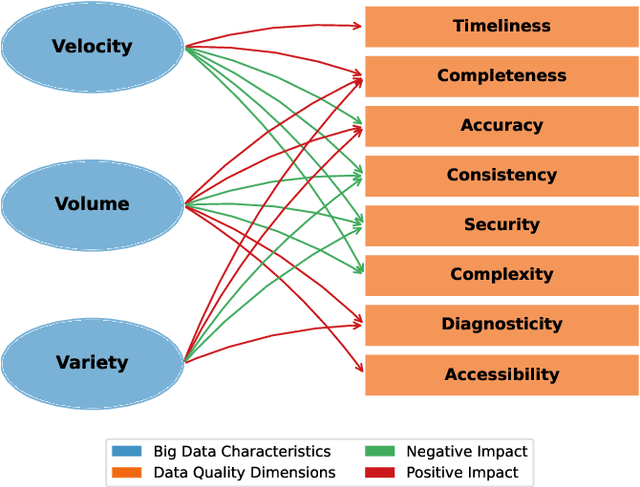

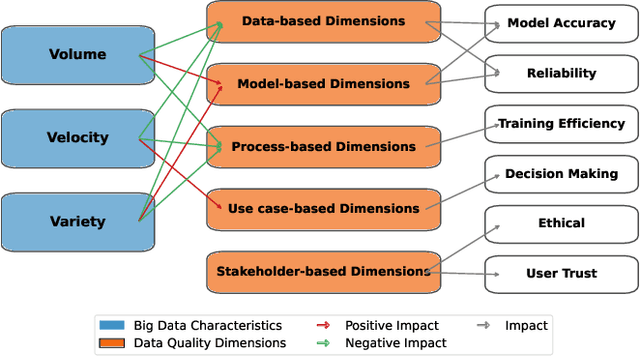
Abstract:Artificial intelligence (AI) has transformed various fields, significantly impacting our daily lives. A major factor in AI success is high-quality data. In this paper, we present a comprehensive review of the evolution of data quality (DQ) awareness from traditional data management systems to modern data-driven AI systems, which are integral to data science. We synthesize the existing literature, highlighting the quality challenges and techniques that have evolved from traditional data management to data science including big data and ML fields. As data science systems support a wide range of activities, our focus in this paper lies specifically in the analytics aspect driven by machine learning. We use the cause-effect connection between the quality challenges of ML and those of big data to allow a more thorough understanding of emerging DQ challenges and the related quality awareness techniques in data science systems. To the best of our knowledge, our paper is the first to provide a review of DQ awareness spanning traditional and emergent data science systems. We hope that readers will find this journey through the evolution of data quality awareness insightful and valuable.
Research Trends for the Interplay between Large Language Models and Knowledge Graphs
Jun 12, 2024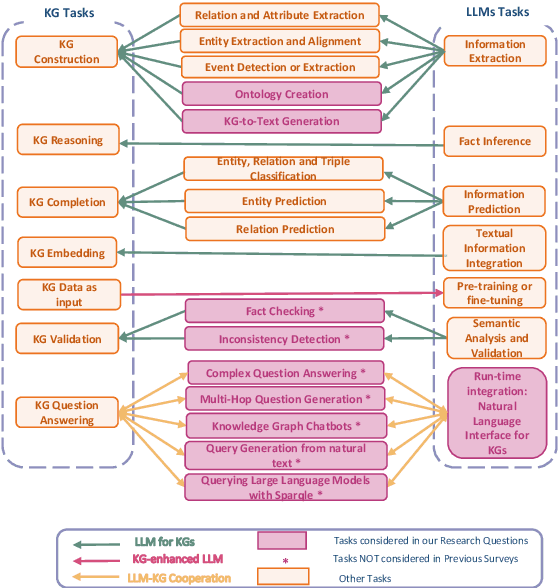
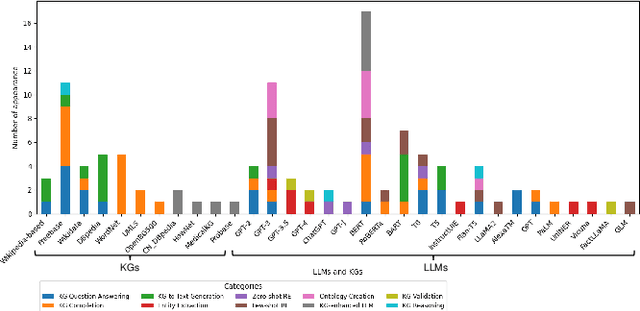
Abstract:This survey investigates the synergistic relationship between Large Language Models (LLMs) and Knowledge Graphs (KGs), which is crucial for advancing AI's capabilities in understanding, reasoning, and language processing. It aims to address gaps in current research by exploring areas such as KG Question Answering, ontology generation, KG validation, and the enhancement of KG accuracy and consistency through LLMs. The paper further examines the roles of LLMs in generating descriptive texts and natural language queries for KGs. Through a structured analysis that includes categorizing LLM-KG interactions, examining methodologies, and investigating collaborative uses and potential biases, this study seeks to provide new insights into the combined potential of LLMs and KGs. It highlights the importance of their interaction for improving AI applications and outlines future research directions.
Are Large Language Models the New Interface for Data Pipelines?
Jun 06, 2024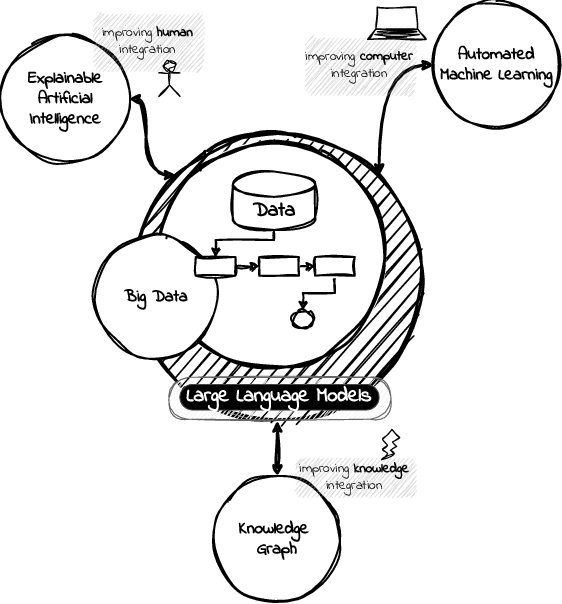
Abstract:A Language Model is a term that encompasses various types of models designed to understand and generate human communication. Large Language Models (LLMs) have gained significant attention due to their ability to process text with human-like fluency and coherence, making them valuable for a wide range of data-related tasks fashioned as pipelines. The capabilities of LLMs in natural language understanding and generation, combined with their scalability, versatility, and state-of-the-art performance, enable innovative applications across various AI-related fields, including eXplainable Artificial Intelligence (XAI), Automated Machine Learning (AutoML), and Knowledge Graphs (KG). Furthermore, we believe these models can extract valuable insights and make data-driven decisions at scale, a practice commonly referred to as Big Data Analytics (BDA). In this position paper, we provide some discussions in the direction of unlocking synergies among these technologies, which can lead to more powerful and intelligent AI solutions, driving improvements in data pipelines across a wide range of applications and domains integrating humans, computers, and knowledge.
 Add to Chrome
Add to Chrome Add to Firefox
Add to Firefox Add to Edge
Add to Edge